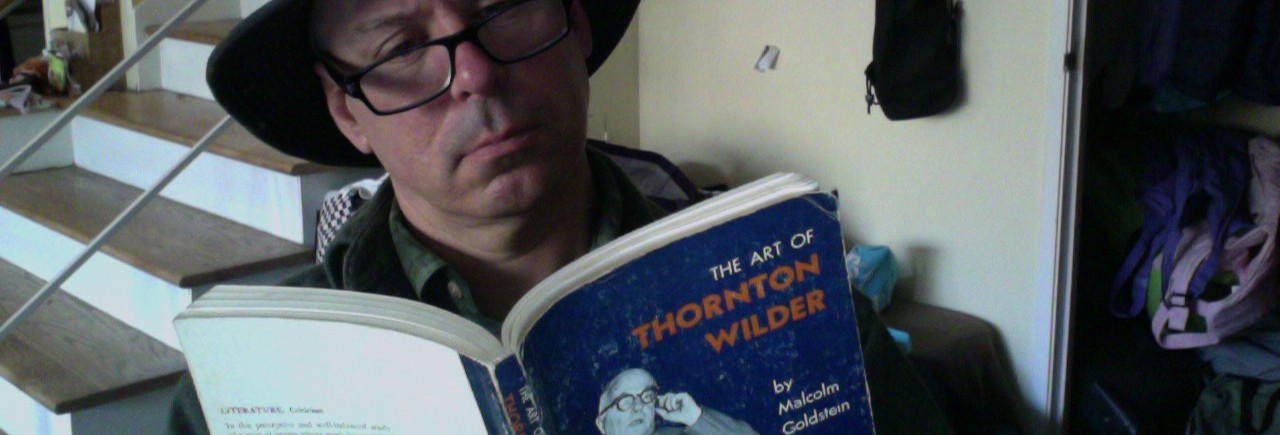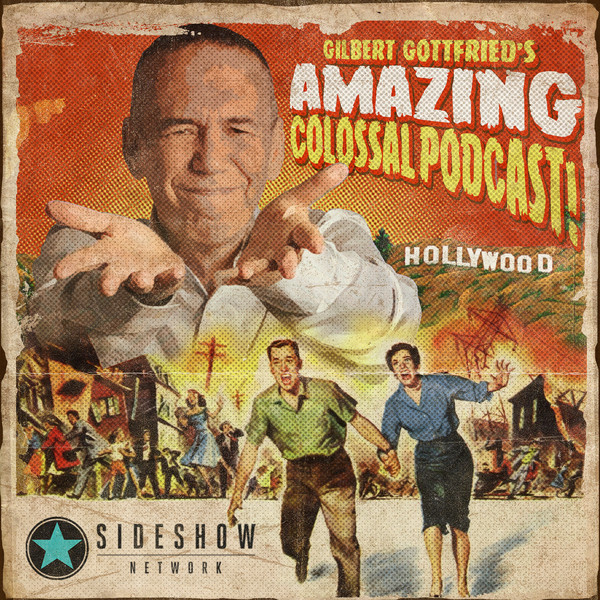The great Gilbert Gottfried, the “comedian’s comedian” who performed just last week in New Haven (christening a new comedy series at the Sports Haven betting parlor) has got his own rambling podcast. If you’ve read his memoir Rubber Balls and Liquor, you know that Gottfried spent his youth glued to the TV, on which he especially enjoyed old movies. The roster of guests he’s had on his show so far have tended to be either 1960s TV icons (Larry Storch, Adam West, Butch Patrick, Dick Cavett, sitcom writer Bill Persky, David Steinberg, Barbara Feldon) and those who share Gottfried’s taste for old-school comedy (Joe Franklin, “Old Jewish Comedians” delineator Drew Friedma, cineaste Robert Osborne, toastmaster Jeff Ross, bandleader Paul Shaffer). One exception to both categories, it would appear, is Danny Aiello, until you learn that before he was an actor he was a bouncer at The Improv comedy club.
Most episodes of Gilbert Gottfried’s Amazing Colossal Podcast!, as the show is called, consist of the squinting, raspy host and his sidekick Frank Santopadre, peppering guests with questions that either begin “You were in…” or “You worked with…” Aiello, who’s got a book coming out this month—I Only Know Who I Am When I Am Somebody Else: My Life on the Street On the Stage and in the Movies (Gallery Books) is of a different era, and gets cut some slack on the nostalgia avalanche.
The actor posits a fascinating, and entirely credible theory about ethnic stereotyping on stage and film in the mid-20th century. All the great Italian angster roles, Aiello, points out, were played by actors trained in the Yiddish theater: Paul Muni, Edward G. Robinson, Rod Steiger, et. al. He states this baldly and clearly, better than I could ever summarize it.
The theory is not new. It comes up in Yiddish theater history books, and there was a “Tough Guys: Images of Jewish Gangsters in Film” showcase at the San Francisco Jewish Film Festival in 2010. But Aiello’s take is different; he resents that these caricatures of Italians—stereotypes he does not recognize from his own upbringing—were coined by actors of another culture.
The episode is here.

